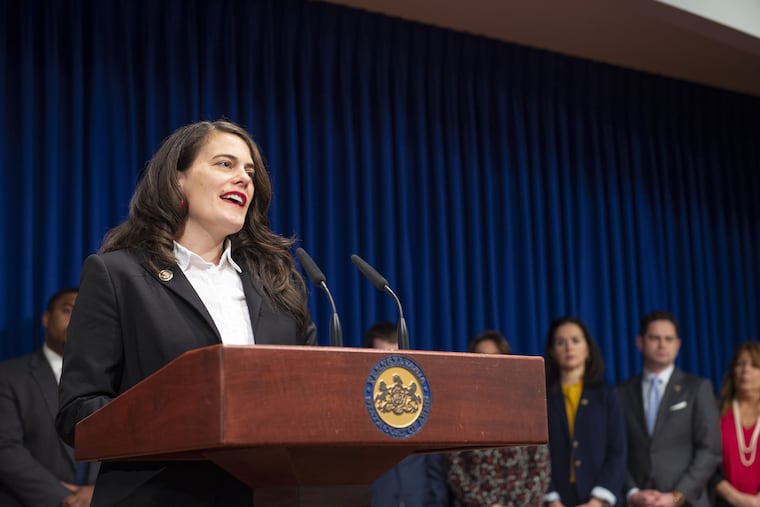Statewide ‘Fair Workweek’ bill to be introduced for retail, fast-food workers
Months after Philadelphia passed a similar law, Fiedler wants to do the same for the state. But it'll be a tougher battle in a Republican-controlled legislature.

Five months after Philadelphia passed a “Fair Workweek” law regulating how employers schedule fast-food, hotel, and retail workers, State Rep. Elizabeth Fiedler wants to make it happen statewide.
Championed by labor groups and progressive politicians around the country as a way to fight poverty, the fair workweek laws aim to provide more predictability in work hours and paychecks for low-wage workers. They generally require large employers to provide schedules two weeks in advance and pay workers “predictability pay” if they change schedules after the fact.
Municipal Fair Workweek laws have passed in New York, Seattle, San Francisco, San Jose, and Washington, D.C., with Los Angeles and Chicago considering one right now. Oregon is the only state to pass the legislation statewide. Maine is also considering a version of the law.
Large employers, industry associations, and chambers of commerce have generally opposed the regulations, saying a “one-size-fits-all” approach does not work for business. Some say they don’t engage in unfair scheduling practices and shouldn’t be penalized for companies that do. Others say that these regulations — on top of other worker-protection laws, such as paid sick leave and minimum wage — will force employers to cut jobs.
Fiedler’s chief of staff, Katie Longo, said the first-term legislator intends to introduce the measure this week in Harrisburg.
Education and enforcement of the law would be the next step in the battle if the measure passes: Local advocates are currently lobbying City Council and Mayor Kenney to strengthen the city’s enforcement office, especially as more worker-protection laws are considered.
The text of Fiedler’s bill was not immediately available. It’s not clear how many workers the bill would affect.
In Philadelphia, after a year of campaigning by labor group One Pennsylvania and a coalition of other worker organizations, including unions, its fair workweek law passed 14-3 — all under a specter of Harrisburg debating a preemption bill that would bar the city from implementing workplace laws. That bill is under consideration of the Labor Committee.
The bill has 48 co-sponsors, Longo said. Yet it will likely face opposition in Harrisburg with a GOP-led legislature.
>> READ MORE: The left-wing uprising that led to Alexandria Ocasio-Cortez’s victory in N.Y.? It happened first in Pa.
At the news conference Fiedler (D.-Phila.) held Tuesday morning, which featured politicians and labor leaders but no workers who would be affected by the bill, she said that Fair Workweek legislation was part of a broader progressive agenda in which she planned to advocate, including “progressive taxation,” a higher minimum wage, and schools that are “fully and fairly funded.”
Asked about the likelihood of the bill passing, Fiedler, a former WHYY journalist who ran as a Democratic Socialist, said it was important even just to raise issues such as scheduling for low-wage workers.
“If we’re not talking about it ... then we’re most certainly never going to pass it,” she said.